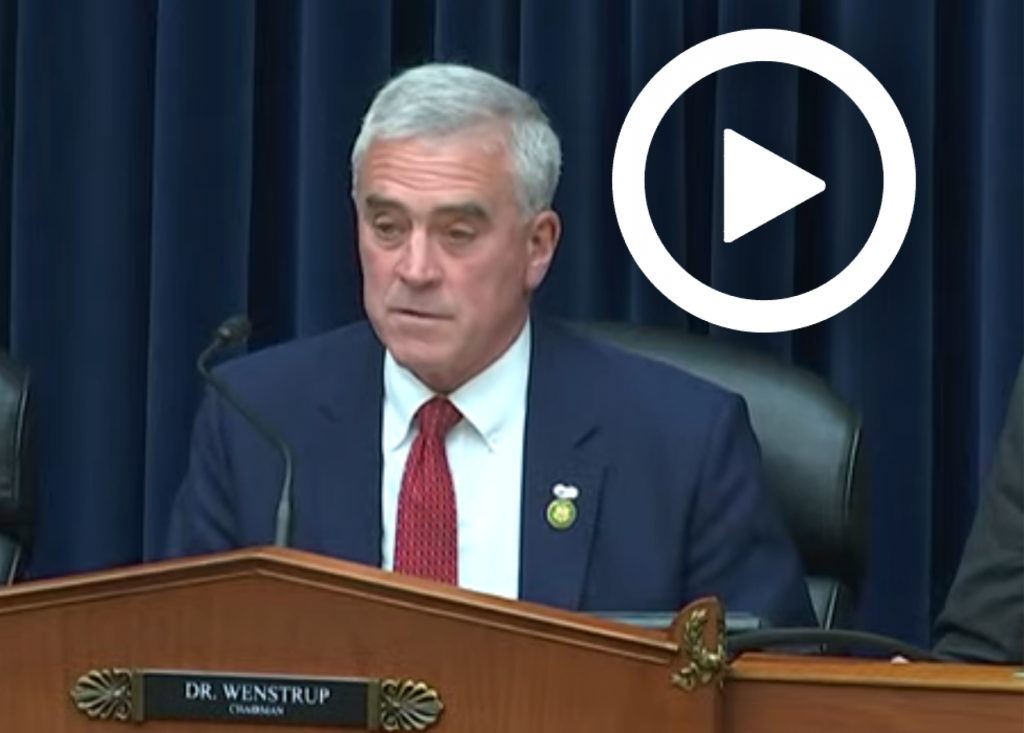Wenstrup: Long-Term Closing of Schools Proved Harmful to Students
WASHINGTON—Select Subcommittee on the Coronavirus Pandemic Chairman Brad Wenstrup (R-Ohio) opened today’s hearing on “The Consequences of School Closures: Intended and Unintended” by emphasizing the importance of preparing America’s education system to effectively address a future pandemic. Chairman Wenstrup outlined the negative effects of prolonged school closures on children and stressed that our country must be never again allow children to pay the price for policy mistakes. He also laid out the Select Subcommittee’s intent to deliver the truth to the American people by fully investigating whether health officials placed the best interest of our nation’s children first.
Below are Select Subcommittee Chairman Wenstrup’s remarks as prepared for delivery.
Before we get started, I want to take a brief moment of silence for the lives lost, students and teachers, in Nashville yesterday.
Thank you. While we are thankful for the quick actions of law-enforcement, we pray and grieve for the families of those that lost their lives in this tragedy.
May we someday discover the underlying events in someone’s life that leads to senseless violence, so that we may prevent great harm.
Today is the Select Subcommittee’s first hearing evaluating impacts and consequences of prolonged pandemic-era school closures.
Early on in this coronavirus pandemic, there was not a lot known.
COVID-19 was clearly a novel virus. It was not acting like SARS or the annual flu.
And unfortunately, China and the World Health Organization seemed to obfuscate facts in real time.
It appeared that our health agencies had gone through decades of unpreparedness.
Taking this into account, some decisions made early on were made with the best intentions and made with the prevailing science at the time.
Through the chaos, and over time, it seemed that many states and districts gave up, or gave in, and failed to put the student’s well-being first.
Long-term closing of schools proved to be harmful to students’ academic, mental, physical, and social development and success.
We need to make every effort to not let this happen again, for the sake of our future.
Preparing this nation’s education system to effectively address a future pandemic starts with holding ourselves and our agencies accountable and being honest about it.
It is fair and just to recognize our errors and misjudgments. Good judgment, retrospective or otherwise, should be acknowledged as well.
The intent of this hearing is to examine school closures related to the COVID-19 pandemic response in order to enable the Select Subcommittee to conduct further investigations, learn from policy failures, discover and apply best practices, and improve readiness for future pandemics.
As we look back, I believe each state and district should’ve asked themselves: “schools need to be open, students need in person instruction, how can we achieve that?”
Many schools did just that.
In full perspective, and indeed retrospectively, the baseline should have been to keep schools open and to ask how that gets done to best protect the health of students and teachers, but also provide the in person learning and social interaction that children need in order to develop normally.
Preparing a nation’s education system to effectively address a future pandemic starts with holding our health agencies accountable, and to expect an open scientific process, steep in accurate data in order to drive sound policy decisions.
Who knows? The next pandemic may affect children more than adults. Will we be prepared to minimize harm?
In the case of the COVID-19 pandemic, the lingering negative effects have been many. Academic, mental, and economic.
There are also secondary harms of prolonged school closures that fell upon children: abuse and poor nutrition among them.
We must strive to be prepared to never let this happen again. Our children have paid the price and are continuing to pay the price.
Let’s make sure that those involved with policy decisions were not motivated in some way to put themselves above our children and their futures.
This isn’t a question of right or left. Opinion difference is one thing, “right and wrong” is yet another.
It is upon us to fully investigate whether officials truly placed the best interest of our nation’s children first, or were other factors at play?
Honesty is non-negotiable.
Our students and our families deserve answers.
I look forward to working with my colleagues, on both sides of the aisle, to deliver the truth to the American people so that we can better prevent, prepare, protect, and maybe prevent, when it comes to our pandemic response in the future.
